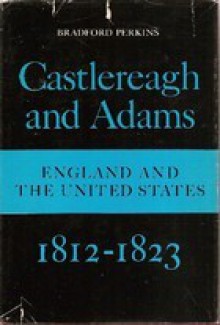This volume, the last of a trilogy devoted to Anglo-American relations for three decades after 1795, develops the themes already visible in the author's The First Rapprochement and Prologue to War. This is the story of America's search for true independence and recognition as a sovereign power,...
show more
This volume, the last of a trilogy devoted to Anglo-American relations for three decades after 1795, develops the themes already visible in the author's The First Rapprochement and Prologue to War. This is the story of America's search for true independence and recognition as a sovereign power, with the political, economic, and psychological implications that accompany independence and sovereignty. After declaring war on England in 1812, the United States sought release from the conflict, release on terms that might fall short of victory but could not be considered dishonorable. This accomplished by the Treaty of Ghent at the end of 1814, the Americans sought to settle other issues with England, issues of old and new, in a series of negotiations after the war. Fortunately they faced, in the British Foreign Secretary, Lord Castlereagh, and his superior, Lord Liverpool, two men who valued Anglo-American friendship and refused to be deterred by the outcries of British nationalists. After Castlereagh's suicide in 1922, George Canning took over the Foreign Office and presided over British policy. At the climax of this new rapprochement, Canning offered to join with the United States in declaring against European intervention in Latin America. The Americans preferred to act alone, as they did in Monroe's famous message of 1823, a decision that marked the completion of American diplomatic independence.
Although other works touch upon particular episodes covered in this volume, no prior work has dealt with Anglo-American relations as a single theme during the period, 1812-1823. The author's unusually wide research in British materials enables him to reassess many familiar topics. British policy at Ghent is viewed in a fresh light, thus opening the way to a reappraisal of the success of the American negotiators and of the treaty itself. The postwar settlements are treated as a unit, and an attempt is made to understand the American policy of Lord Castlereagh, hitherto usually oversimplified. Finally, thanks in part to the use of new material from the Canning papers and in part to the general approach of this volume, a new emphasis appears in the discussion of the Monroe Doctrine.
show less

